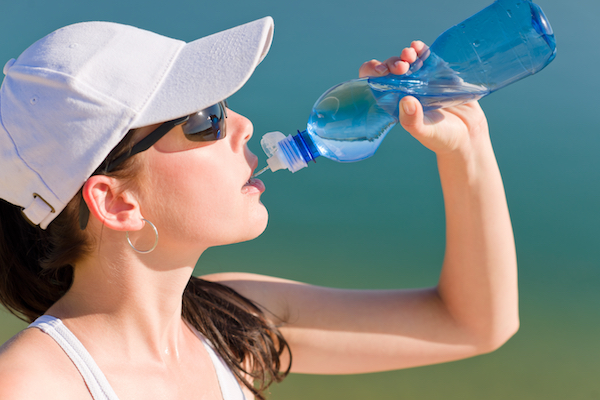The code on plastic items appears as a triangle containing a number from one to seven. The code was developed for recycling purposes. There are questions being raised about plastic coded seven. Plastic seven is used for all plastics that do not fit into the number one through six designation.
Bisphenol A (BPA) is a chemical used in production of some plastic products, including some reusable water bottles. BPA does not fit plastic coded one through six designations. Products containing BPA will have a number seven code but not all plastic bottles coded seven contain BPA. It is important to note that BPA can be present in products besides water bottles, such as baby bottles, liners of food cans, compact discs, dental sealants, eye glasses and more.
The National Toxicology Program (NTP) is a program that helps provide information about potential toxic chemicals. NTP released a brief on BPA. The draft was distributed for public comment and peer review and isn't intended to represent a final conclusion.
There are several levels used to describe NTP's concern over BPA. The five levels from highest to lowest are: serious concern, concern, some concern, minimal concern and negligible concern.
NTP wrote that there is some concern for neural and behavioral effects in fetuses, infants and children at current human exposures. The NTP also states that there is some concern for BPA exposure in these populations based on effects in the prostate gland, mammary gland and an earlier age for puberty in females.
NTP also expressed negligible concern that exposure of pregnant women to BPA will result in a fetal or neonatal mortality, birth defects or reduced birth weight and growth in their offspring. There also is a negligible concern that BPA exposure causes reproductive effects in non-occupationally exposed adults and minimal concern for workers exposed to higher levels in occupational settings.
Some Nalgene water bottles contain BPA, but not all Nalgene are coded seven. The company that produces Nalgene bottles said it is eliminate containers with BPA from their outdoor line. New water bottles are being manufactured with a BPA-alternative.
Studies show that heating a container with BPA will result in a greater exposure to the contaminant. Some stores have pulled products with BPA and some manufacturers have stopped producing the products. Check with specific stores and manufacturers for specific updates.
Remember that not all plastic water bottles designated seven have BPA. Current science suggests there is negligible concern for adults, but some concern for impact on fetuses, infants and children from typical use of containers with BPA. Additional research is necessary to definitively answer health risk questions.
